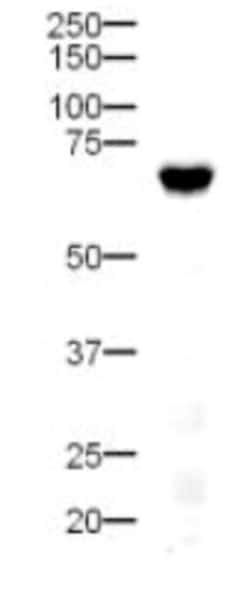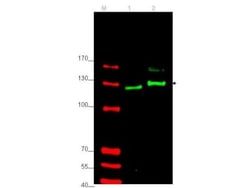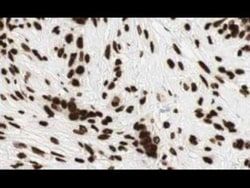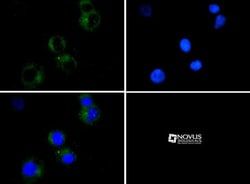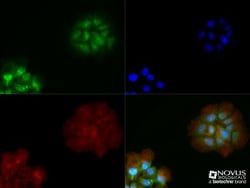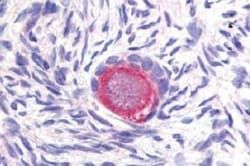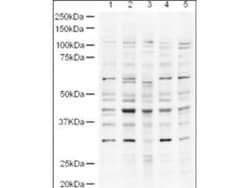DLL4 Antibody, Novus Biologicals™
Manufacturer: Fischer Scientific
Select a Size
| Pack Size | SKU | Availability | Price |
|---|---|---|---|
| Each of 1 | NB600892-Each-of-1 | In Stock | ₹ 58,829.00 |
NB600892 - Each of 1
In Stock
Quantity
1
Base Price: ₹ 58,829.00
GST (18%): ₹ 10,589.22
Total Price: ₹ 69,418.22
Antigen
DLL4
Classification
Polyclonal
Conjugate
Unconjugated
Formulation
0.02 M Potassium Phosphate, 0.15 M Sodium Chloride, pH 7.2 with 0.01% Sodium Azide
Gene Alias
delta 4, Delta 4 precursor, delta ligand 4, delta4, delta-like 4 (Drosophila), delta-like 4 homolog, delta-like 4 homolog (Drosophila), delta-like 4 protein, delta-like protein 4, Drosophila Delta homolog 4, hdelta2, MGC126344, notch ligand delta-2, notch ligand DLL4
Host Species
Rabbit
Molecular Weight of Antigen
74.6 kDa
Quantity
0.1 mg
Research Discipline
Neuroscience
Gene ID (Entrez)
54567
Target Species
Human
Isotype
IgG
Applications
Western Blot, ELISA, Immunohistochemistry, Immunocytochemistry, Immunofluorescence, Immunohistochemistry (Paraffin)
Concentration
1 mg/ml
Dilution
Western Blot 1:500-1:2500, Flow Cytometry, ELISA 1:10000-1:50000, Immunohistochemistry 10 ug/ml-20 ug/ml, Immunocytochemistry/Immunofluorescence 1:10 - 1:500, Immunohistochemistry-Paraffin 10 ug/ml-20 ug/ml
Gene Accession No.
Q9NR61
Gene Symbols
DLL4
Immunogen
DLL4 Antibody was prepared from whole rabbit serum produced by repeated immunizations with a synthetic peptide corresponding to an internal region of Human DLL4. (Uniprot: Q9NR61)
Purification Method
Affinity Purified
Regulatory Status
RUO
Primary or Secondary
Primary
Test Specificity
Cross reactivity is expected with Chimpanzee DLL4 based on a 91% homology to the core 12 amino acid sequence within the 14 amino acid immunogen sequence. Cross reactivity with DLL4 homologues from other sources has not been determined.
Content And Storage
Store at -20°C short term. Aliquot and store at -80°C long term. Avoid freeze-thaw cycles.
Description
- DLL4 Polyclonal specifically detects DLL4 in Human, Mouse, Rat samples
- It is validated for Western Blot, Flow Cytometry, ELISA, Immunohistochemistry, Immunocytochemistry/Immunofluorescence, Immunohistochemistry-Paraffin.
